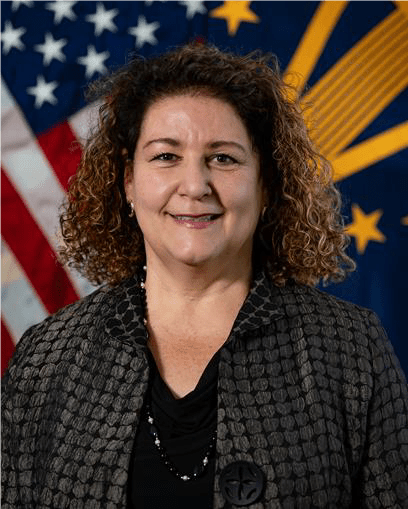
The finalists for WashingtonExec’s Pinnacle Awards were announced Oct. 11, and we’ll be highlighting some of them until the event takes place live, in-person Nov. 30.
Next is Cybersecurity Government Executive of the Year finalist Monica Farah-Stapleton, who’s chief engineer in the Federal Electronic Health Record Modernization Office. Here, she talks success in her current role, proud career moments, career advice and more.
What has made you successful in your current role?
I am not afraid to do hard things. To the contrary, I find the greatest joy from solving tough problems. Over time, I have been drawn to socio-technical problems, which require an understanding of the interplay of people and technologies across organizations as well as the limits between the two.
While setbacks are not uncommon in the socio-technical space, I have found that framing setbacks as opportunities instead of failures helps me focus on formulating next steps to solve the problems.
What are you most proud of having been a part of in your current organization?
I am most proud of my work deploying a commercial electronic health record to the Department of Defense, Department of Veterans Affairs, Department of Homeland Security’s US Coast Guard and shortly to the National Oceanic and Atmospheric Administration. Implementing the federal EHR has fundamentally been a massive socio-technical problem.
Federal organizations each have their own cultures and strengths. Navigating those cultures, and their legacy infrastructures and technologies, has been challenging. Now that we have hit a tipping point and the federal EHR has been deployed to these agencies, I can see that we are only beginning to scratch the surface of how patient-centered technologies and processes will improve the health and well-being of millions of people in a multitude of ways ⏤ large and small.
Looking back at your career, what are you most proud of?
At the start of my career, I made the conscious decision to not let anyone tell me what I could or could not do. When I finished college, the technical workspace was just starting to open up for women ⏤ there were very few of us around, particularly in the engineering field. During those early years ⏤ and even into the middle of my career ⏤ I was exposed to de facto discrimination, sometimes by smart, well-meaning people.
Had I listened to those voices, or more importantly internalized their belief system, my career would have had a markedly different and less satisfying trajectory. Instead, I assessed what I could do and seized the opportunities available to me, while paving a path for others.
What’s your best career advice for those who want to follow in your footsteps?
The most important thing is to get into the details and master your craft, otherwise you can be misled by charlatans. While there is no “I” in team, there should be. Each of us needs to hold ourselves accountable for what we produce as well as holding the process accountable. Bear in mind that sometimes the only person who needs to know the good you have done is you.
Furthermore, make a point to mentor those around you whenever possible and appropriate. By sharing and teaching, you will learn and grow tremendously.

